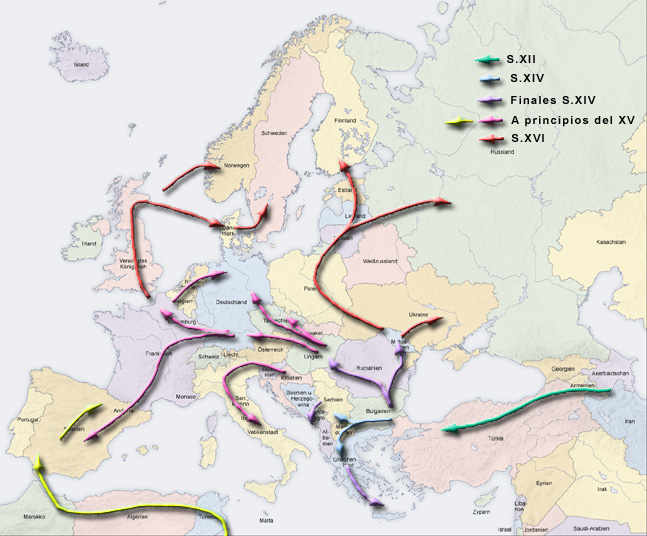|
Anti-Romani
Anti-Romani sentiment (also antigypsyism, anti-Romanyism, Romaphobia, or Antiziganism) is hostility, prejudice, discrimination or racism which is specifically directed at Romani people (Roma, Sinti, Iberian Kale, Kale (Welsh Roma), Welsh Kale, Finnish Kale, Horahane Roma, and Romanichal). Non-Romani itinerant groups in Europe such as the Yenish people, Yenish, Irish Travellers, Irish and Scottish Gypsy and Traveller groups#Indigenous Highland Travellers, Highland Travellers are often given the name "gypsy" and confused with the Romani people. As a result, sentiments which were originally directed at the Romani people are also directed at other traveler groups and they are often referred to as "antigypsy" sentiments. The term ''Antigypsyism'' is recognized by the European Parliament and the European Commission as well as by a wide cross-section of civil society. Etymology In the Romani language, ''Rom'' is a masculine noun, meaning 'man of the Roma ethnic group' or 'man, husba ... [...More Info...] [...Related Items...] OR: [Wikipedia] [Google] [Baidu] |
Romanichal
Romanichal Travellers ( ; more commonly known as English Gypsies or English Travellers) are a Romani subgroup within the United Kingdom and other parts of the English-speaking world. There are an estimated 200,000 Romani in the United Kingdom; almost all live in England. Most Romanichal speak Angloromani, a mixed language that blends Romani vocabulary with English syntax. Etymology The word "Romanichal" is derived from ''Romani chal'', where ''chal'' is Angloromani for "fellow".Oxford English Dictionary Second Edition 1989, "Romany3, n. and a." Distribution Nearly all Romanichal Travellers in Britain live in England, with smaller communities in South Wales, Northeast Wales, and the Scottish Borders. The Romanichal diaspora emigrated from Great Britain to other parts of the English-speaking world. Based on some estimates, there are now more people of Romanichal descent in the United States than in Britain. They are also found in smaller numbers in South Africa, Australia, Cana ... [...More Info...] [...Related Items...] OR: [Wikipedia] [Google] [Baidu] |
Romani People
The Romani (also spelled Romany or Rromani , ), colloquially known as the Roma, are an Indo-Aryan ethnic group, traditionally nomadic itinerants. They live in Europe and Anatolia, and have diaspora populations located worldwide, with significant concentrations in the Americas. In the English language, the Romani people are widely known by the exonym Gypsies (or Gipsies), which is considered pejorative by many Romani people due to its connotations of illegality and irregularity as well as its historical use as a racial slur. For versions (some of which are cognates) of the word in many other languages (e.g., , , it, zingaro, , and ) this perception is either very small or non-existent. At the first World Romani Congress in 1971, its attendees unanimously voted to reject the use of all exonyms for the Romani people, including ''Gypsy'', due to their aforementioned negative and stereotypical connotations. Linguistic and genetic evidence suggests that the Roma originated ... [...More Info...] [...Related Items...] OR: [Wikipedia] [Google] [Baidu] |
Gypsy
The Romani (also spelled Romany or Rromani , ), colloquially known as the Roma, are an Indo-Aryan ethnic group, traditionally nomadic itinerants. They live in Europe and Anatolia, and have diaspora populations located worldwide, with significant concentrations in the Americas. In the English language, the Romani people are widely known by the exonym Gypsies (or Gipsies), which is considered pejorative by many Romani people due to its connotations of illegality and irregularity as well as its historical use as a racial slur. For versions (some of which are cognates) of the word in many other languages (e.g., , , it, zingaro, , and ) this perception is either very small or non-existent. At the first World Romani Congress in 1971, its attendees unanimously voted to reject the use of all exonyms for the Romani people, including ''Gypsy'', due to their aforementioned negative and stereotypical connotations. Linguistic and genetic evidence suggests that the Roma originated in ... [...More Info...] [...Related Items...] OR: [Wikipedia] [Google] [Baidu] |

